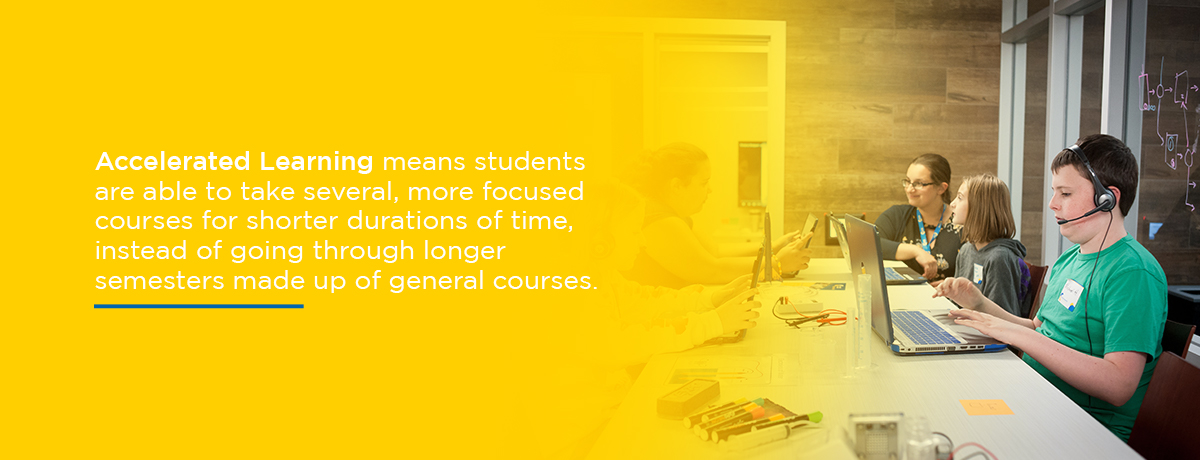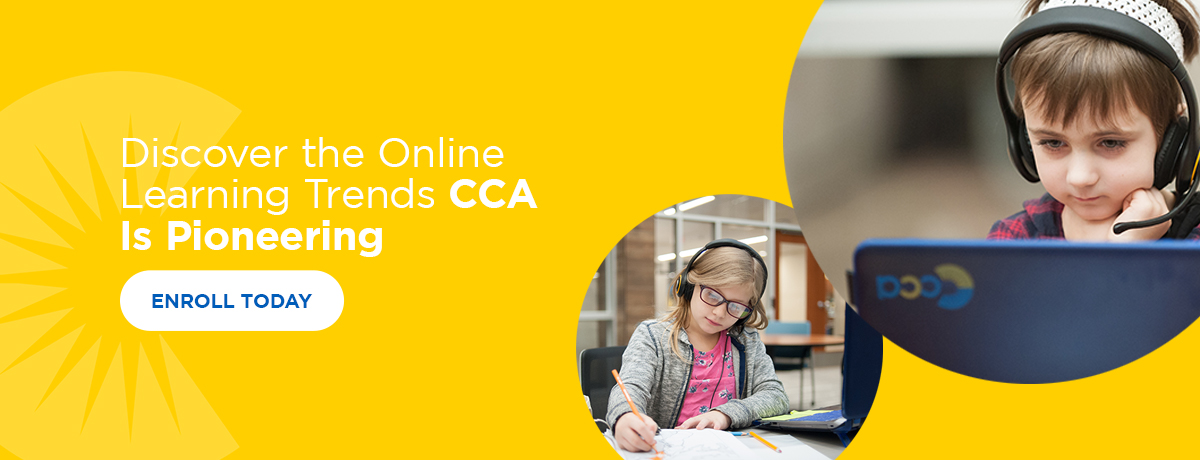While online education has been around for several years, we’ve recently seen an explosion of growth and interest in opportunities pertaining to online learning. This development creates room for several new improvements and developments. Many trends in online education turn old-fashioned teaching methods on their heads. As a result, online learning is now capable of meeting the needs of students with different backgrounds, abilities, and learning styles, ensuring education is accessible for all.
1. Adaptive Learning
It’s clear that children learn in different ways and at different paces. The trend of adaptive learning gives way to a process for more personalized learning. These systems of learning use data from student feedback and assessments alongside special algorithms and teacher adjustments to create individualized learning that adapts with the student. This setup ensures students receive better instruction that’s tailored to their needs, rather than “teaching to the middle,” where some students become left behind and others can’t reach their full potentials.
2. Artificial Intelligence
AI, or artificial intelligence, is already used in education in a few crucial ways:
- Adaptive learning: AI technology is used for adaptive learning purposes, helping to tailor learning plans and lessons to individual student needs.
- Administrative tasks: Another significant way that artificial intelligence is changing education is in administrative tasks for teachers. Certain tedious tasks like grading and logging attendance can be done by AI, freeing up teachers for more personalized learning approaches and one-on-one attention for students.
- Tutoring: AI can also be used for tutoring support, providing specific feedback for the particular student to help them learn better.
Over time, we’ll start to see more AI elements becoming commonplace in online learning.
3. Augmented and Virtual Reality
Both virtual reality and augmented reality have been used for years for video games and other entertainment. However, the world of online learning is starting to see the value in both technologies. Instead of simply reading about a topic, students can immerse themselves fully into whatever they’re studying, whether it’s exploring a tundra or “time-traveling” back to a certain time period.
This immersive technology will help students’ understanding of particular topics, and will only improve and expand in the coming years.
4. Chatbots
While you may know chatbots from retail and other websites, many online schools are starting to use chatbots for education purposes. This technology can’t take the place of teachers — but it can assist by answering routine and repetitive questions from students. Using chatbots can ensure teachers have more time for more important tasks, and students get the answers they need.

5. Accelerated Learning
One of the most significant online learning trends is accelerated learning, especially in upper grade levels. This concept means students are able to take several, more focused courses for shorter durations of time, instead of going through longer semesters made up of general courses. These high-speed classes cover shorter education modules before moving on to the next module or class topic. When taken online, students can learn about a plethora of topics.
6. Microlearning
The concept of microlearning is closely related to accelerated learning in that it has to do with shorter snippets of educational content. This trend plays into the shorter attention spans of modern students and provides shorter bursts of high-quality educational content.
A few examples of microlearning are short videos or infographics that provide information in shorter bursts. This type of learning resource makes learning more manageable for many students and makes it easier to provide refresher or review content in bite-sized pieces. Some students lose interest in long lectures, so supplementing them with microlearning is appealing to and helpful for learners.
7. Mobile Learning
When thinking of online learning, many people picture students sitting at a desk with a computer. But the reality is, much like everything else in our lives, tablets and smartphones are increasingly being used in education. Almost anything you can do on a computer, you can do on a smartphone. As a result, many schools are using special educational apps — and even creating their own. These apps can make accessing coursework and resources as accessible as possible.
8. Personalized and Adaptable Learning
Today’s top educators realize all students have different learning styles, abilities, and interests and not all students can learn at the same pace. In the past, curricula and learning plans were more one-size-fits-all, not taking into account the differences among learning preferences.
Creating personalized and adaptable learning plans is more inclusive and allows for greater flexibility and learning success. At Commonwealth Charter Academy (CCA), we provide several options for personalized learning, including customizable schedules and modes of instruction. CCA allows students to learn in the way that best fits them and prepares them for future success.
9. Social Learning
Some students learn better when working with peers and collaborating on projects. Instead of only using readings, lectures, and the like, social learning emphasizes working together and learning from each other. It values experiences and the sharing of information and promotes the development of healthy social skills and communication during learning. Ultimately, social learning may help increase information retention while making learning more enjoyable.
When practicing social learning online, students can use separate virtual meeting rooms, discussion boards, and chat capabilities to talk about their projects with teacher supervision.
10. Video Learning
It should be no surprise that learning through videos is one of the emerging trends in online learning. With different learning styles, many students simply do not learn well with the old-fashioned lecture-and-take-notes approach. Using tools like educational videos helps learners of different abilities and makes the learning process more enjoyable for students.
This medium can be used in a variety of ways for learning and will likely be utilized even more in the future. CCA uses video for a wide array of educational purposes in our curriculum, including music videos, in-house video creation, news clips, instructional videos, simulations, and so much more. At CCA, we recognize the value of video learning as an important tool for education.
Discover the Online Learning Trends CCA Is Pioneering
The faculty and staff at CCA understand that all students are unique, so we’re constantly evolving to meet our students’ needs and preferences. CCA utilizes many of the latest trends in e-learning, including mobile app development, video creation, and more. CCA educators and developers are always at the forefront of developing trends so we can provide the best for our students.
Contact us today to learn more about our exciting online learning opportunities.




